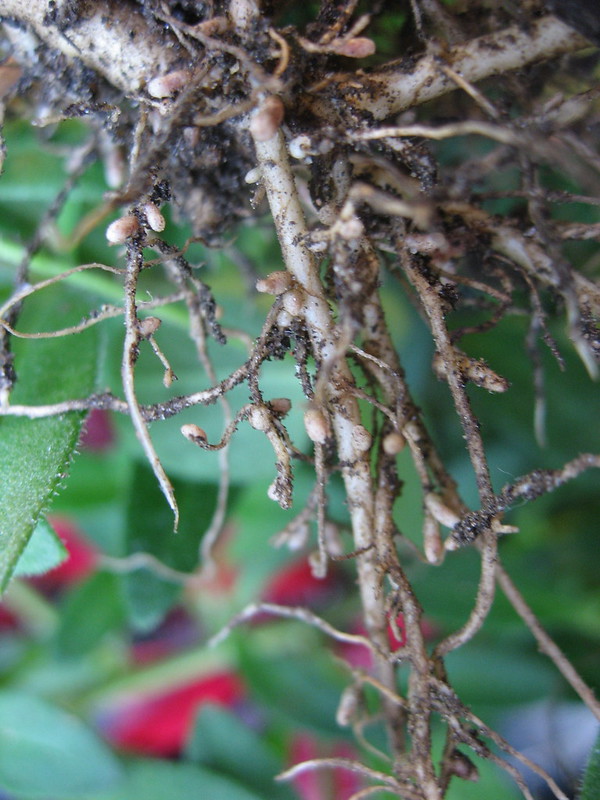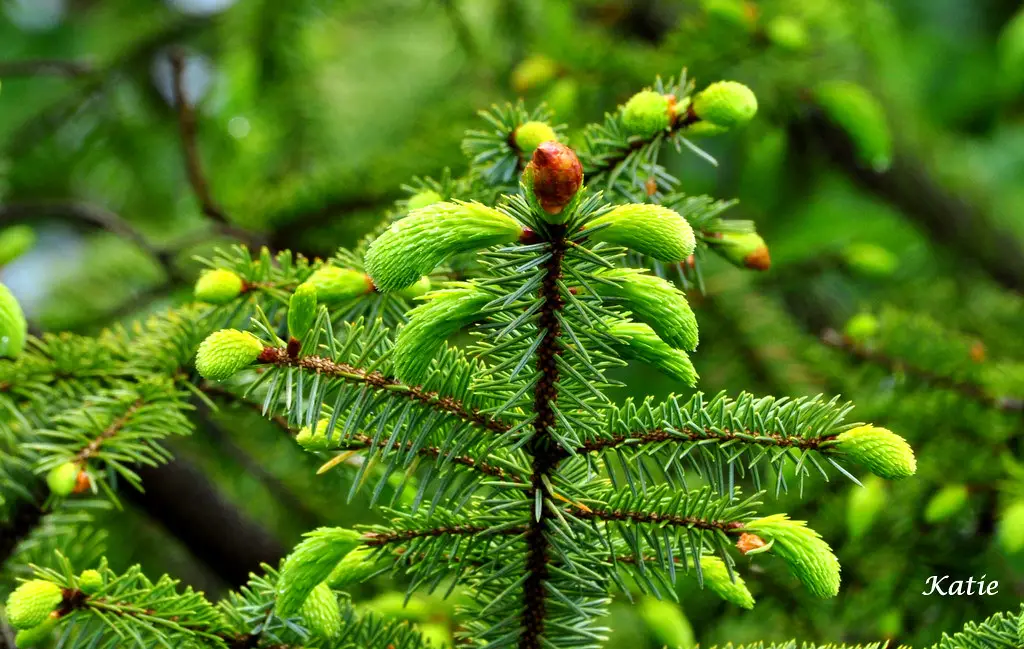How to Grow a Tree from a Branch Without Rooting Hormone
To grow a tree from a branch without rooting hormone, place a clipping from the main plant in a dark-colored bottle filled with water, ensuring the roots are not exposed to direct sunlight. After a few weeks, some plants will start growing roots naturally.
This method can be used for various plants, including vinehouse plants and peppermint plants. Using this technique, you can successfully propagate new trees without the need for rooting hormones. By following a few simple steps, you can enjoy the satisfaction of growing a new tree from a branch.
Choosing the Right Branch
Learn how to grow a tree from a branch without using rooting hormone by taking a clipping and placing it in a dark-colored bottle filled with water. After a few weeks, you’ll see roots starting to grow. This simple method works well for various types of plants and can save you money on expensive rooting hormones.
When it comes to growing a tree from a branch without rooting hormone, the first step is to collect a clipping from the main plant. This process involves selecting a branch of appropriate thickness that is about the thickness of a pencil. Ensure that the branch is healthy and free from any diseases or pests. Collecting a clipping from a healthy plant will increase the chances of successful propagation.
Take A Clipping From The Main Plant
To collect a clipping, start by cutting a branch from the main plant using clean and sharp pruning shears or a knife. Choose a branch that is at least 6 to 8 inches long for optimum results. It is important to make a clean cut just below a node or leaf joint.
Choose A Branch Of Appropriate Thickness
When selecting a branch for propagation, it is important to choose one of appropriate thickness. The branch should be about the thickness of a pencil to ensure that it has enough nutrients and energy to develop roots. A thicker branch may struggle to form roots and may not successfully grow into a new tree.
After taking a clipping from the main plant, it is important to place it in a suitable environment to encourage root growth. This can be done by placing the clipping in a dark-colored bottle filled with water, as roots do not thrive when exposed to direct sunlight. Carefully monitor the clipping over the next few weeks and observe how it changes and grows. Some plants, especially vinehouse plants and peppermint plants, may start propagating roots after just a few weeks.
In addition to placing the cutting in water, it is also possible to use other methods such as wrapping the cutting with seed starter soil and enclosing it in a black plastic bag to create a moist and humid environment. This will help promote root development and increase the chances of successful propagation. Regardless of the method chosen, it is important to keep the cutting moist but not soaking wet to avoid rotting.
It is worth noting that while rooting hormone can be beneficial in promoting root growth, it is not always necessary. Many plants have the ability to root easily in water or soil without the use of additional hormones. So if you do not have access to rooting hormone, don’t be discouraged. With proper care and the right conditions, you can still successfully grow a tree from a branch without it.
Preparing The Clipping
Learn how to grow a tree from a branch without rooting hormone by taking a clipping from your main plant and placing it in a dark-colored bottle filled with water. After a few weeks, you’ll start to see roots growing, allowing you to propagate new plants.
To successfully grow a tree from a branch without using rooting hormone, it is essential to prepare the clipping properly. This involves two crucial steps: removing any leaves from the bottom of the clipping and cutting off a small portion of the bark at the base of the clipping. Let’s dive into each step in detail.
Remove Any Leaves From The Bottom Of The Clipping
When preparing the clipping, start by removing any leaves from the bottom portion. Leaves can soak up excess moisture and hinder the root development, so it’s important to eliminate them. Simply pinch off the leaves, leaving a clean stem at the bottom of the clipping. This will help redirect the energy towards root growth.
Cut Off A Small Portion Of The Bark At The Base Of The Clipping
Next, carefully cut off a small portion of the bark at the base of the clipping. This process is called scarification and aids in the rooting process by exposing the inner cambium layer. Using a clean and sharp knife, make a small diagonal cut about one inch long at the base of the clipping. This slight damage encourages the development of new roots.
Here’s a visual representation of the steps involved in preparing the clipping:
| Steps | Description |
|---|---|
| Step 1 | Remove leaves from the bottom of the clipping. |
| Step 2 | Cut off a small portion of the bark at the base of the clipping. |
By following these simple steps, you can increase the chances of successful rooting and ultimately grow a new tree from a branch without the need for rooting hormone. Remember to provide proper care and create the ideal environment for your clipping to thrive. Happy propagating!
Creating The Water Propagation Setup
When it comes to growing a tree from a branch without rooting hormones, creating the right water propagation setup is crucial. Follow these steps to ensure successful propagation:
Select A Colored Bottle To Minimize Sunlight Exposure
Choose a dark-colored bottle for your water propagation setup. This will help minimize sunlight exposure, as roots don’t thrive when exposed to direct sunlight. By using a dark-colored bottle, you will provide the clipping with the ideal environment for root growth.
Fill The Bottle With Water, Ensuring The Clipping Is Completely Submerged
Fill the bottle with water, making sure that the clipping is fully submerged. This ensures that the cutting receives enough moisture and allows the roots to develop properly. Check the water level regularly and refill as needed to maintain the desired level.
Place The Bottle In A Location Away From Direct Sunlight
Find a suitable location for the water propagation setup where it is away from direct sunlight. This will prevent excessive heat and sunlight exposure, which can hinder root development. Choose a spot that provides indirect light or shade to create an optimal environment for the cutting to grow roots.
Providing Optimal Conditions For Root Growth
Monitor The Water Level And Replenish As Needed
When growing a tree from a branch without rooting hormone, it is crucial to monitor the water level to ensure that the cutting receives an adequate amount of moisture. As the water evaporates, replenish it in the container to maintain the ideal level. By doing so, you are creating a favorable environment for the roots to develop.
Keep The Clipping In A Warm And Humid Environment
Another essential factor in promoting root growth is maintaining a warm and humid environment for the cutting. This can be achieved by placing the clipping in a dark colored bottle, which helps prevent direct sunlight. The dark color absorbs heat, creating a cozy atmosphere for the cutting. With the warmth and humidity, the roots are encouraged to grow and establish themselves, leading to successful propagation.
Avoid Overwatering To Prevent Rotting
To prevent rotting and ensure optimal root growth, it is crucial to avoid overwatering the cutting. While it is important to keep the soil or water moist, excessive water can lead to waterlogged conditions, suffocating the roots. This can inhibit root development and potentially cause the cutting to decay. It is best to maintain a balance by providing enough moisture without overdoing it.
In conclusion, providing optimal conditions for root growth is essential when attempting to grow a tree from a branch without rooting hormone. Monitoring the water level, creating a warm and humid environment, and avoiding overwatering are key factors that contribute to the success of root development. By adhering to these guidelines, you increase the chances of propagating a healthy tree from a branch, even without the use of traditional rooting hormone.
Monitoring And Cultivating Root Growth
Grow a tree from a branch without rooting hormone by taking a clipping from the main plant and placing it in a dark-colored bottle filled with water. After a few weeks, you’ll start seeing roots forming. It’s an easy and budget-friendly way to cultivate root growth.
Observe The Clipping For Signs Of Root Development
Once you have taken a clipping from your main plant and placed it in a dark-colored bottle filled with water, it’s time to start monitoring the progress of root growth. Keep the bottle in a location that receives indirect sunlight, as roots do not thrive when exposed to direct sunlight.
Over the course of a few weeks, you will begin to notice changes in the clipping. Certain plants, such as vine house plants and peppermint plants, may start propagating roots sooner rather than later. Keep a close eye on the clipping and observe any signs of root development.
Allow A Few Weeks For Roots To Grow
Once you have placed the clipping in water, it’s important to exercise patience and allow time for roots to grow. Typically, it takes a few weeks for roots to form and establish themselves. During this waiting period, make sure to regularly check the water level in the bottle and refill it as needed to maintain proper moisture for root growth.
Be patient and resist the urge to prematurely transfer the clipping to soil. Giving the roots ample time to develop will increase the chances of successful propagation.
Transfer The Clipping To Soil Once Roots Have Formed
After a few weeks of patiently monitoring root growth, you will eventually notice that roots have formed on the clipping. This is an exciting milestone, as it indicates that the clipping is ready to be transferred to soil.
Before transferring the clipping, prepare a suitable pot with well-draining soil. Gently remove the clipping from the water, taking care not to damage the delicate roots. Place the clipping into the soil, ensuring that it is securely anchored.
After transplanting the clipping, provide it with proper care and attention, including regular watering and adequate sunlight. With time, the clipping will continue to grow and develop into a full-fledged tree.
Frequently Asked Questions On How To Grow A Tree From A Branch Without Rooting Hormone
Can You Grow Cuttings Without Rooting Hormone?
Yes, you can grow cuttings without rooting hormone. Some plants can easily root in water without the need for additional hormone. Alternatively, you can use natural alternatives like aloe vera or cinnamon as rooting powder substitutes. Simply dip the cuttings in water or the chosen alternative and watch them grow.
Can I Cut A Branch Off A Tree And Plant It?
Yes, you can cut a branch off a tree and plant it. Take a branch about the thickness of a pencil, remove some bark at the bottom, and apply the rooting hormone (optional). Plant it in soil or place it in water until it develops roots.
What Is A Good Substitute For Rooting Powder?
A good substitute for rooting powder is Aloe vera, which contains beneficial components that promote root development in cuttings and air layering. Another alternative is cinnamon, which is a natural and affordable option without disrupting the soil or ecosystem.
Can Cinnamon Replace Rooting Hormone?
Yes, cinnamon can be used as a natural alternative to rooting hormone. It is affordable, easily accessible, and does not disrupt the soil or ecosystem. This organic option promotes healthier plant growth without the need for commercially available rooting hormones. Cinnamon as a Rooting Hormone Alternative – Organic and Affordable
Can I Use the Same Method to Grow a Tree from a Branch Without Rooting Hormone as I Would to Clone a Tree?
Yes, you can use the same cloning tree branch technique to grow a tree from a branch without rooting hormone as you would to clone a tree. This method involves selecting a healthy branch, preparing the cutting, and ensuring proper care and conditions for successful growth.
Conclusion
Growing a tree from a branch without rooting hormones is a simple and budget-friendly technique. By taking a cut from your main plant and placing it in a dark bottle filled with water, you can observe the growth of roots after a few weeks.
This method is particularly effective for vinehouse plants and peppermint plants. By following the steps mentioned, you can successfully propagate new plants without the need for rooting hormones. Embrace the natural process and watch your tree thrive!
Related Articles
10 Best Small Evergreen Trees with Non Invasive Roots
 Dr Ahsanur Rahman, PHD
Dr Ahsanur Rahman, PHDPine Tree Rescue: Saving Pine Trees with Brown Needles
 Dr Ahsanur Rahman, PHD
Dr Ahsanur Rahman, PHD







